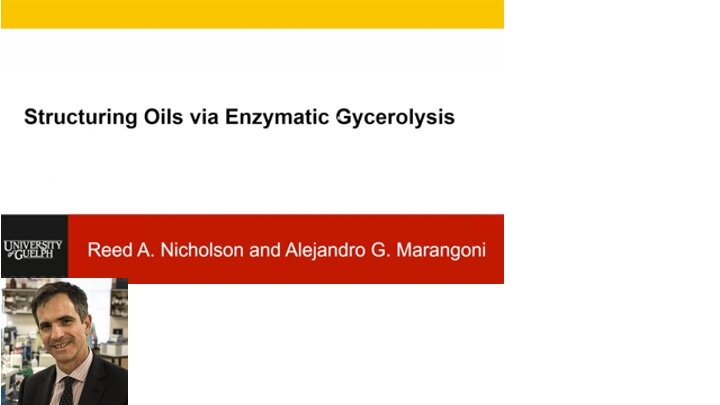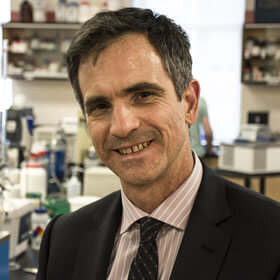VIDEO - Northern Lights on Food II workshop - Structuring Oils via Enzymatic Glycerolysis with Alejandro Marangoni


VIDEO - Northern Lights on Food II workshop - Structuring Oils via Enzymatic Glycerolysis with Alejandro Marangoni
Speaker: Alejandro Marangoni, University of Guelph, Canada
This lecture was part of the workshop, Northern Lights on Food II, organised on June 9-11, 2021, by the LINXS working group Food, with support from Formas.
Abstract
Current trans fat replacement strategies provide food products with acceptable textural and sensory properties on a large scale, and at a reasonable price, but carry health and environmental burdens. Palm oil is used extensively because of its high solidity and functionality, however, increased production has led to deforestation throughout the world’s tropical regions. To reduce dependence on palm oil it is necessary to find a means of structuring a variety of readily available vegetable oils. Using cottonseed and peanut oils, and another 8 oils, we show that enzymatic glycerolysis can structure liquid oils into solids fats through monoacylglycerol and diacylglycerol production from their native triacylglycerols without the addition of saturated or hydrogenated fat, thus not altering fatty acid composition. Solid fat contents of cottonseed and peanut oils, for example, were increased from 8% to 29% and 9% to 30% at 5°C, respectively, and 21% and 10% at 20°C, respectively. Additionally, oil-binding capacity was enhanced significantly. These novel oils were used to produce margarine and peanut butter with similar textural properties to commercial products but, importantly, represent a healthy and sustainable means to replace hydrogenated or saturated fats.
